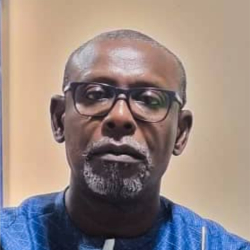Mahama’s gift-giving code lacks clarity and encourages double standards – Transparency Int’l Ghana – Nsemkeka
Transparency International Ghana has criticised former President John Mahama’s proposed code on gift-giving, describing it as vague, inconsistent, and susceptible to abuse by public officials.
Speaking on Joy FM’s Super Morning Show, the organisation’s Fundraising Manager, Michael Boadi, said the code, particularly the section on gift-giving, lacks the clarity and specificity needed to serve as a reliable ethical guide.
“The issue of clarity and specificity is important in the context of looking at the gift-giving,” Mr Boadi stated. “If you take the provision or the section on gift-giving and you test it by the principles of clarity and specificity, you will see that the code has some inherent weaknesses.”
He said the section appears to send mixed messages and fails to provide unambiguous guidance to public officials.
“The introduction to that section talks about not accepting the gift at all, whether it is cash or in kind. But then it goes forward and says, ‘if you may’ — I mean, who won’t?” he questioned.
Mr Boadi noted that although the code discourages accepting gifts at public events, it allows for acceptance with disclosure, which he believes defeats the initial intent.
“It talks about the fact that in public events, it is not acceptable, it is not a good practice, and you will offend the system. And then it says you should collect it and declare — that’s contradictory.”
He further argued that the code is strong on transparency rhetoric but weak in enforceable standards.
“You realise that the code is very heavy on the accountability and transparency component but very weak on the issue of specificity and clarity,” he said. “Because it leans more on double standard-ness — like, ‘you shouldn’t, but if you may’ — but we know that we all will.”
Mr Boadi also questioned the GH₵20,000 threshold set for declaring gifts, stressing that context matters.
“You might think that GH₵20,000 in Accra or the big cities won’t compromise a public official. But GH₵20,000 is a lot of money to a DCE in a remote community — and it can compromise someone.”
Transparency International Ghana is urging a revision of the code to close the loopholes and align it more firmly with best practices in anti-corruption and public accountability.

